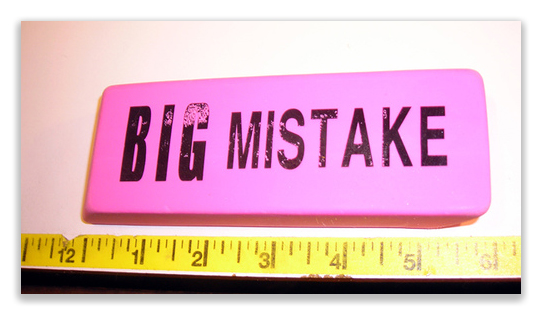We post news and comment on federal criminal justice issues, focused primarily on trial and post-conviction matters, legislative initiatives, and sentencing issues.

9TH CIRCUIT SAYS COURTS MUST KEEP THE OLD ERRORS IN FSA RESENTENCING
You’d think that if a court had a chance to fix an old mistake when it resentenced someone, the judge would welcome the opportunity to do it right. You would be wrong.
 Ezralee Kelley was sentenced in 2006 on a crack distribution charge, with a sentencing range of 262-327 months due to her being a Guidelines “career offender.” After the First Step Act made the 2010 Fair Sentencing Act (FSA) retroactive, she filed for a reduced sentence.
Ezralee Kelley was sentenced in 2006 on a crack distribution charge, with a sentencing range of 262-327 months due to her being a Guidelines “career offender.” After the First Step Act made the 2010 Fair Sentencing Act (FSA) retroactive, she filed for a reduced sentence.
A word about “career offenders”: Back many, many years ago, I was in the Air Force. It being the dawn of the recreational drug era, we all had to fill out a questionnaire about our drug use (or abstinence). Being smart airmen (no women in our unit back then), we all knew how much the brass would appreciate our candor, so we lied like a president on Twitter.
What struck me about the questionnaire was its categories. If you admitted to a single dalliance with controlled substances, you were classified as an “experimenter.” If you admitted to two or more uses of controlled substances, you were a “chronic abuser.” While how many drug abuse events were necessary to rank one as a “chronic abuser,” we were all pretty sure that number was a lot larger than two. Nevertheless, the categories were useful, because it informed us of the Air Force’s view of drug abuse. If we were to admit to “getting high,” we had better be talking about flying an airplane.
 Chapter 4B of the Guidelines is like that. If you have two prior convictions for a drug trafficking offense or crime of violence, or a mix, the Guidelines calls you a “career offender.” Under the Guidelines, a career offender’s offense level automatically shoots into low earth orbit (usually a 37) and your criminal history is deemed to be Category VI (which is the max). If you sold me 50 lbs of pot, and you had two prior pot-selling convictions – federal or state – you could easily have a Criminal History score of II and a Guidelines Level of 12 (USSG. § 2D1.1(c)(12) for you technical folks). Your sentencing range would be 24-30 months, a veritable vacation.
Chapter 4B of the Guidelines is like that. If you have two prior convictions for a drug trafficking offense or crime of violence, or a mix, the Guidelines calls you a “career offender.” Under the Guidelines, a career offender’s offense level automatically shoots into low earth orbit (usually a 37) and your criminal history is deemed to be Category VI (which is the max). If you sold me 50 lbs of pot, and you had two prior pot-selling convictions – federal or state – you could easily have a Criminal History score of II and a Guidelines Level of 12 (USSG. § 2D1.1(c)(12) for you technical folks). Your sentencing range would be 24-30 months, a veritable vacation.
But because of your two prior state felony convictions – even if you only got probation for those – you would be a Guidelines career offender. Your offense level would shoot up to a 32 and your Criminal History category to VI. Your sentencing range would be 210-262 months (that’s 17.5 years to almost 22 years).
Like the Air Force “chronic abuser,” your two prior flirtations with the law (even if they were 14 years before), just turned two years in a federal prison camp into almost two decades in a place with guards with guns and razor wire.
(The foregoing is a mere illustration: you could not sell me 50 lbs of marijuana, because I have never, never even once used the stuff. Just check my Air Force questionnaire response if you doubt me.)
In today’s case, Ezralee’s youthful indiscretions had netted her two prior Washington state convictions for drugs. When she got a federal crack distribution case, she was “careered out,” as they say, and got a fearsomely long sentence. But when First Step made her eligible for an FSA reduction, she hoped to hit a home run.
 A few years ago, the 9th Circuit had ruled that the some of Ezralee’s Washington state convictions used back in 2006 to make her a career offender do not count toward career offender. As a result, Ezralee said, she should be resentenced without the career status, which should drop her from 262-327 to a 51-month range.
A few years ago, the 9th Circuit had ruled that the some of Ezralee’s Washington state convictions used back in 2006 to make her a career offender do not count toward career offender. As a result, Ezralee said, she should be resentenced without the career status, which should drop her from 262-327 to a 51-month range.
The district court ruled that, mistake or not, it could not reconsider on an FSA resentencing whether she was a career offender.
 Last week, the 9th Circuit agreed. The Circuit explained that First Step permits the court to sentence as if parts of the FSA had been in place at the time the offense occurred, not as if every subsequent change in the law benefitting the defendant had occurred. In an FSA resentencing, the 9th said, the district court has to apply the laws that existed when the defendant’s crack offese was committed, only adding the FSA’s statutory reductions.
Last week, the 9th Circuit agreed. The Circuit explained that First Step permits the court to sentence as if parts of the FSA had been in place at the time the offense occurred, not as if every subsequent change in the law benefitting the defendant had occurred. In an FSA resentencing, the 9th said, the district court has to apply the laws that existed when the defendant’s crack offese was committed, only adding the FSA’s statutory reductions.
Thus, Ezralee’s new sentence assumed only that the FSA was in existence, resulting in a recalculated Guidelines range of 188 to 255 months. The Court gave her 180 months at resentencing.
United States v. Kelley, 2020 US App LEXIS 18834 (9th Cir Jun 15, 2020)
– Thomas L. Root
